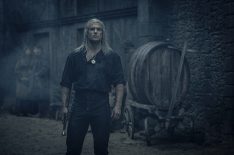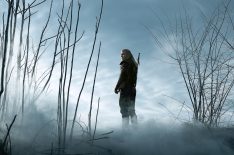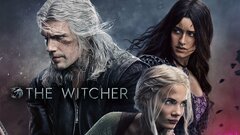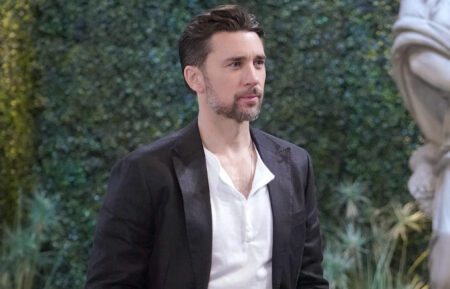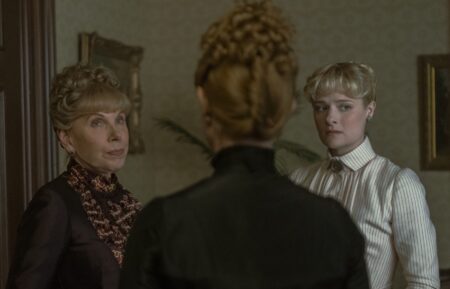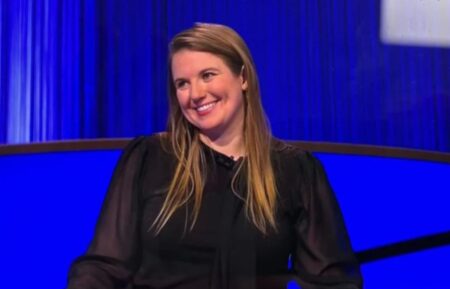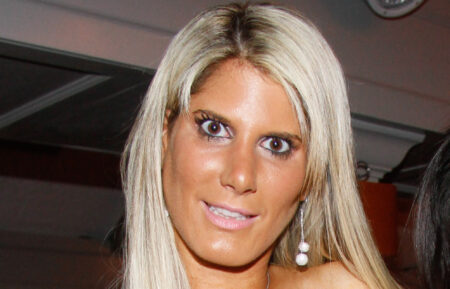‘The Witcher’ Is a Sword-Swinging Delight in Season Premiere (RECAP)
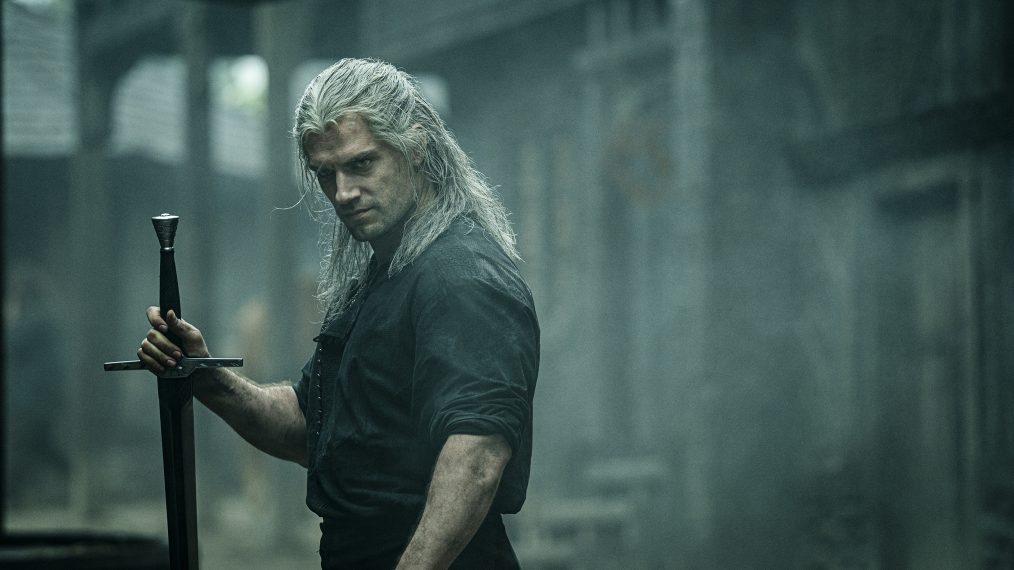
Spoiler Alert
[Warning: The below contains MAJOR spoilers for The Witcher Episode 1, “The End’s Beginning.”]
Hold onto your swords, folks, Netflix is dipping its toes into the fantasy genre. As the TV industry continues its quest for the next Game of Thrones, it comes as no surprise that the biggest streaming platform on the planet would join the hunt — and the streamer might have just found itself a worthy successor to the fantasy-drama crown in The Witcher.
Now, I’m a novice when it comes to The Witcher, and I’m not going to pretend otherwise. Here’s what I know: It’s a popular video game which is based on a series of Polish books, and it follows the exploits of a monster hunter called Geralt. That’s where my knowledge of The Witcher begins and ends. So this puts me in an intriguing position going into Lauren Schmidt Hissrich’s new TV adaptation — I’m essentially a test guinea pig. My mission is to tell if the series is accessible for new viewers or if it’s an indecipherable, impenetrable piece of fan-service.
I’ll admit up front that I was skeptical going in. However, that wasn’t necessarily to do with The Witcher itself but more of a general feeling of “fantasy-epic” fatigue. Maybe it’s because of the sour taste left by the last couple of seasons of Game of Thrones. Or perhaps it’s because I’m also watching His Dark Materials, another fantasy-drama based on a series of books, which, while entertaining in parts, is also full of tired tropes and slowly paced world-building. Do we really need another fantasy series where sullen characters mope around talking about “fate” and “destiny”?
Well, I’m pleased to say that The Witcher‘s first episode, “The End’s Beginning,” quickly tempered my skepticism. There is a lot to enjoy here. Firstly, it looks fantastic. The visuals were something His Dark Materials struggled with early on, as its limited locations failed to capture the breathtaking wonder one expects from a fantasy that is meant to expand across worlds. The Witcher immediately feels epic with its vast landscapes, CGI spider-monsters, and incredibly brutal battle scenes. You get the sense that this is a huge, densely populated world with various hierarchies and warring factions.
Secondly, Henry Cavill is brilliantly deadpan as Geralt, the sexy-but-surly, white-haired Witcher. I’m not sure how diehard Witcher fans feel about the casting, but the Superman actor not only looks the part, but he brings a certain gravitas to the role. And it helps that Cavill is a massive nerd and a big fan of The Witcher story-verse; in fact, Cavill made his desire to play Geralt public knowledge before casting on the Netflix series even started. Cavill simply embodies Geralt from the moment he bursts onto screen fighting a giant, tentacled swamp-beast.
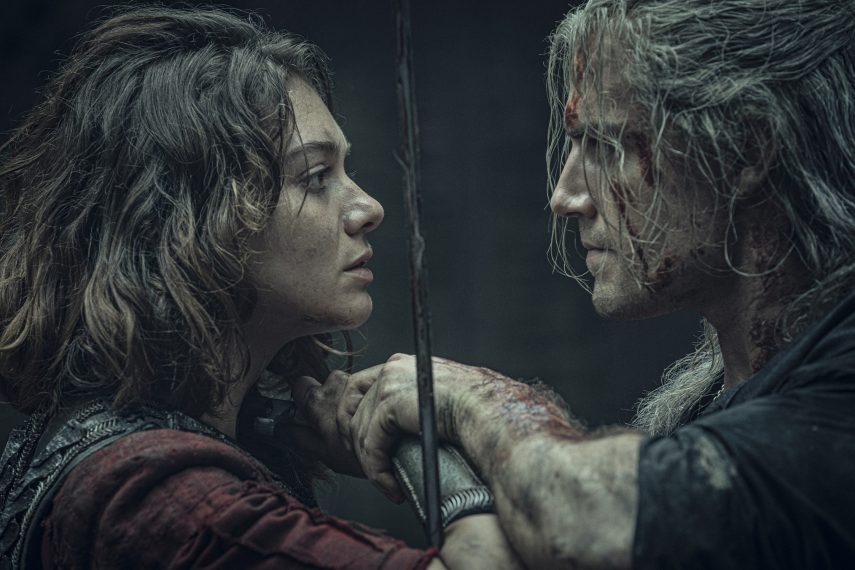
Netflix
And lastly, and perhaps most importantly, it’s relatively easy to grasp what is going on, even for a complete newcomer like myself. Yes, there are some phrases and references to places and people that I don’t yet understand, but they’re not distracting enough to be offputting. It’s not so cryptic to be bewildering like some of the later episodes of Damon Lindelof’s Watchmen, for example. The main story beats and character motivations are straightforward enough to follow.
It’s quickly understood that a Witcher is a mutant who slays monsters for money. Witchers are also maligned by most of society, as we see by the verbal abuse hurled at Geralt when he arrives in the town of Blaviken, hoping to sell his dead swamp monster (a Kikimora). It’s in this town where Geralt meets Marilka (Mia McKenna-Bruce), a feisty young girl with dreams of becoming a Witcher herself. “I think you’re a hero…” she tells Geralt, “…my mother thinks you’re offspring of foul sorcery, a diabolic creation, a filthy degenerate born of Hell.” The show has humor too!
Marilka takes Geralt to see a local sorcerer, Master Stregobor (Lars Mikkelsen), who wishes to hire the Witcher to slay a monster, Renfri (Emma Appleton), a former princess who is said to be a mutated human, cursed by a demon goddess. But Geralt is thrown into a moral quandary when Renfri tells him that Stregobor is a liar and that she wants him dead. According to the beautiful princess, she is a mere victim of fantastical rumors. That she was, in fact, attacked and raped by one of Stregobor’s men, and that she only killed as a means to survive.
It’s a simple introductory story that provides an insight into the kind of person Geralt is and what code he abides by. In his own words, he only kills monsters, not humans. He is a man who claims not to choose sides and doesn’t believe in killing for the lesser evil. “Evil is evil,” he tells Stregobor. “Lesser, greater, middling. It’s all the same. If I have to choose between one evil or another, I would rather not choose at all.” When he’s killed out of a sense of moral justification in the past, it hasn’t changed a thing or brought any semblance of peace. Instead, Geralt would rather stay out of these situations. Of course, that is easier said than done.
Geralt tells Renfri to forget about her lust for vengeance and instead leave town and start over. And she appears to agree, before seducing the white-haired wanderer and sleeping with him in the forest. But this turns out to be a trap — a sort of sex spell that invades Geralt’s sleeping mind. In his dream, Renfri alludes to Geralt’s future. He will find himself in a market covered in blood, being accused and stoned by angry townsfolk. Renfri also talks of a “girl in the woods” whose destiny is tied to Geralt’s — there should be a “destiny” counter in the bottom corner of the screen.
And so, in a self-fulfilling act, Geralt heads to the market where he’s forced into a sword fight with the brutish townsfolk, before battling Renfri herself, who threatens to kill Marilka. There was a lot of pre-season hype from critics about this sword fight, and let me tell you, it lives up to expectations. It’s an expertly choreographed and scintillating showdown — we’ve come a long way from Errol Flynn and his Men In Tights. In the end, despite his code, Geralt has no choice but to kill Renfri. And when he refuses to let Stregobor take her body for an autopsy, the townsfolk turn on him, calling him a “butcher” and a “beast” and ordering him to leave and never come back, even Marilka. It’s not easy being a Witcher.
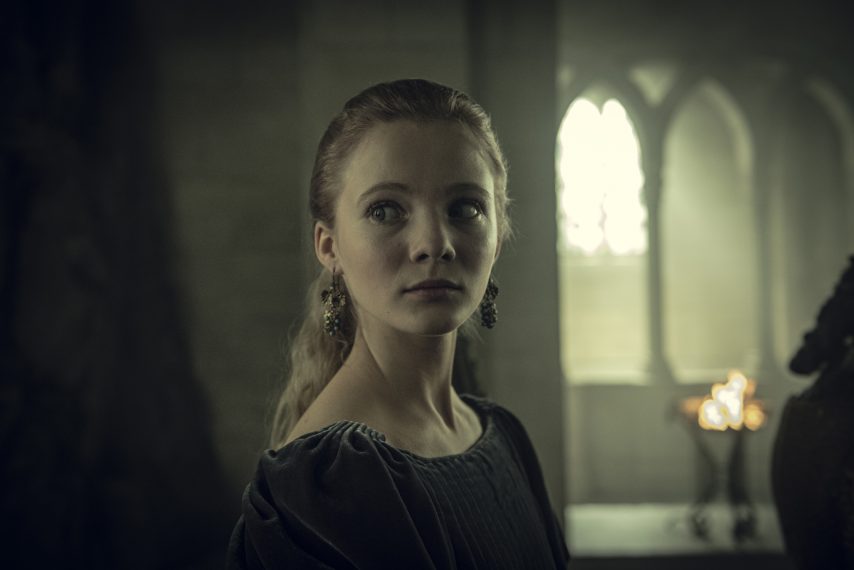
Netflix
Across the continent, in the kingdom of Cintra, another story takes shape revolving around a princess in a castle. This plot is a little more confusing as we’re thrust right into the action with no time for a history lesson. There are a lot of characters introduced here, and the majority of them are dead by the time the credits roll. Basically, Queen Calanthe (Jodhi May) and King Eist Tuirseach (Björn Hlynur Haraldsson) are under attack from the Nilfgaard army — at this stage, I just have to assume Nilfgaard is another city. This leads to an immense battle scene that gives some of the Game of Thrones‘ action sequences a run for their money.
Now, it’s hard to be invested in a battle of this scale when we don’t yet know the characters or feel any emotional attachment to them. But I do admire the boldness of dropping us straight into the inciting incident. So many series spend weeks spinning their wheels, so it’s refreshing for a series to just say, ‘Hey, look, this is a war that is happening, Nilfgaard is powerful, and the King and Queen of Cintra are dead.’ And I’m fine with that because this story is clearly not about the war itself. It’s about the aftermath of that war, which is an orphaned princess who finds herself alone and on the run.
Princess Ciri (Freya Alan) is a spirited young woman, stubborn and sarcastic, but obviously, someone who loves her family. She is somewhat sheltered and naive to the ways of the world, but she has a passion to learn and a desire to break free of the princess stereotypes. When we first meet Ciri, she’s dressed down and slumming it on the streets with the regular folk. But we’re also told she is important — destined for greatness. Her grandmother (the Queen), and sorcerer/advisor Mousesack (Adam Levy), try to prepare her for what’s to come, advising her to “keep her sword close and keep moving.”
Why is Ciri so special? It could have something to do with her untapped powers. Her screams of fear are capable of causing earthquakes, cracking apart the ground beneath her. She is the reason Nilfgaard ambushed the city in the first place. But Ciri doesn’t yet know or understand her own abilities. All she knows is that she must escape and survive, and that’s exactly what she does. As her home burns behind her and her loved ones perish, Ciri runs into the woods with her grandmother’s parting words ringing through her head: “Find Geralt of Rivia.”
As I said earlier, I’m not familiar with The Witcher books or video game, but the obvious takeaway here is that Ciri is a Witcher, right? I know Marilka said that girls can’t be Witchers earlier in the episode, but that seems included to be proven wrong. If Ciri and Geralt’s fates are intertwined, as suggested by both Renfri and Queen Calanthe, then it’s reasonable to believe they share Witcher blood. And so there we have our two main characters introduced and connected within the first episode, and that should be deemed a success in my eyes.
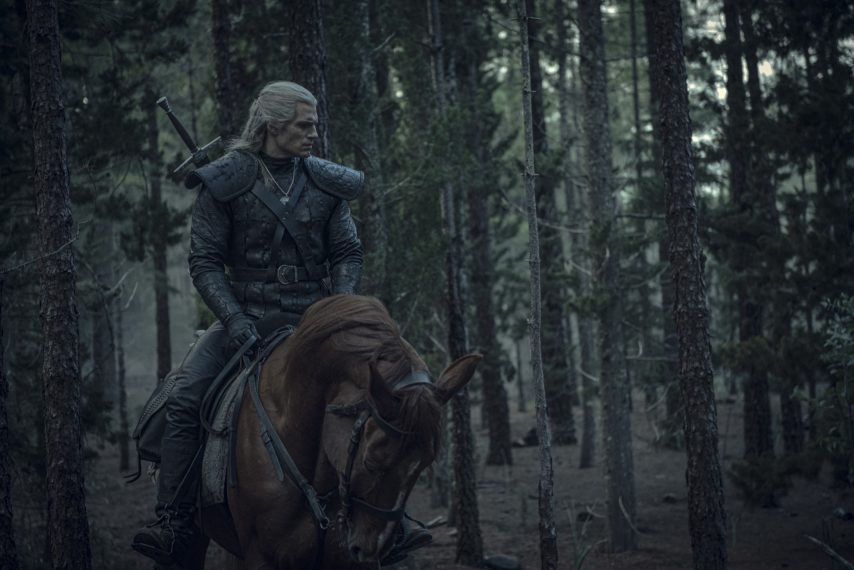
Netflix
Is this a perfect premiere? No. There are still certain tired fantasy tropes, like all the destiny talk and info-dumping monologues. There is also a needless Game of Thrones-style backdrop of naked women — as if Netflix has a “boob quota” it needs to fulfill. But there is a tongue-in-cheek quality which elevates the weaker material. As I mentioned earlier, this series has a dry sense of humor, which helps undercut the seriousness. “All good predictions rhyme,” Geralt quips when Stregobor talks of the black sun curse. It’s lines like that which make the show so likable.
If this episode is a sign of things to come, then it’s a very good sign indeed. Maybe The Witcher really is destined to become the next big fantasy hit?
Additional Notes
- I’m a big fan of Geralt cutting off Master Stregobor’s convoluted monologue and telling him to “speak normally.” Anything that plays with the fantasy formula is a win in my book.
- Geralt’s horse, Roach, is a great listener, and I suspect the only being in this world with whom the Witcher is completely honest.
- While we don’t learn a lot about the Nilfgaard, Calanthe describes them as vicious people who take no prisoners… they kill, rape, and torture. This is why she chooses to jump out of the castle window and take her own life, rather than wait to be brutalized by her enemies.
The Witcher, Season 1, Streaming, Netflix
From TV Guide Magazine
How 'Countdown' Recruited Jensen Ackles to Go Full 'Die Hard'
Countdown boss Derek Haas talks creating the character around Ackles, and the cast teases the “Avengers”-like team of the crime thriller. Read the story now on TV Insider.


